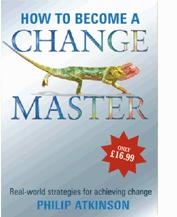Influence, Persuasion and Soft Leadership Skills

“Without Leadership there is no Change”. The best in persuasive techniques, negotiation, conflict management, influence strategies and psychometrics is central to this process. It is a cycle of learn, rehearse, practise, reflect. Those who drive change probably project much more of a creative ‘transformational’ style than their less visible ‘transactional’ types, who prefer to focus on short-term managerial and administrative style.
We believe that those who are transformational in nature probably are quite independent, will challenge the status quo and look for new ways of working. Make no mistake, independent people can be difficult to manage but given the choice would you want the future of your business reliant on thoroughbred race-horses or donkeys, the high performer or their lacklustre counterpart?
Take a Good Look in the Mirror
Personal traits are definitely instrumental in shaping change projects. A slow moving mechanical style that focuses on analysing and measuring everything never achieves a great deal and even if they do, they do so in spite of failing to provide a lead to their team. The versatile, high achieving, inspiring individual who focuses on team development will always come out the winner. You may ask yourself how many managers in your organisation reflect these desirable characteristics?
We utilise personality profiles to examine the variety of styles that can be successful in bringing about change. Our particular model is based on the active transformational style of manager who spends a great deal of her or his time challenging the way things are done. There is always a better way or a cheaper way or simply another way to reduce cycle times and unnecessary inspection and micro management. Transformers have something about their personality that inspire and enthuse people to greater achievements.
What’s it like to receive your behaviour?
In our development Workshops we focus on ‘mirror gazing’, asking oneself “what is it like to look to take a good look in the mirror? We ask the question what is it like to receive my behaviour on a good day and on a bad day?” We encourage others to reflect on this and examine how their unconscious and conscious behaviours impact the effectiveness of others – especially direct reports and peers. Just by focusing on how we interact with others, we can get a grasp of the conscious and unconscious triggers and behaviours we send out. We can then identify whether we are moving further towards developing a real team around us, or just winning acceptance and conformity because of our authority.
We are watching you – the Boss Watcher
Remember, everyone is a boss watcher. If you are in a position of authority, people will be looking for your verbal and non verbal cues and triggers – so it might be a good idea to understand what sort of behaviours you send out to the world. We all have good days and bad days, but it’s better to deliberately invest in new behaviours, motivating your team to act’. Through extensive L&D you can generate big, and long lasting, results that can seriously improve company performance.
In our Workshops we use a variety of models for reflecting on our styles and how we impact others. I prefer a Jungian profile not dissimilar to Myers Briggs – we use them interchangeably, and from the various types, we distil these down to four ‘pure types’ Regulator, Visionary, Facilitator and Analyst. By understanding how to deal with them, you is much more confident and can practise new behaviours.
Managers have a much better grasp of things if they can focus on broad ‘types’ rather than trying to follow every nuance of specific types. Our development is focused on how people move through different ‘personality stances’ depending on the prevailing challenges and pressures during their day. We argue strongly that no one type is perfect or ideal, but being able to be flexible and adapt to the circumstances is the key to influencing others. With practise, you can swiftly identify the objections that others have to your proposals in advance of them being raised.
Contact Form or Email Philip
We believe that those who are transformational in nature probably are quite independent, will challenge the status quo and look for new ways of working. Make no mistake, independent people can be difficult to manage but given the choice would you want the future of your business reliant on thoroughbred race-horses or donkeys, the high performer or their lacklustre counterpart?
Take a Good Look in the Mirror
Personal traits are definitely instrumental in shaping change projects. A slow moving mechanical style that focuses on analysing and measuring everything never achieves a great deal and even if they do, they do so in spite of failing to provide a lead to their team. The versatile, high achieving, inspiring individual who focuses on team development will always come out the winner. You may ask yourself how many managers in your organisation reflect these desirable characteristics?
We utilise personality profiles to examine the variety of styles that can be successful in bringing about change. Our particular model is based on the active transformational style of manager who spends a great deal of her or his time challenging the way things are done. There is always a better way or a cheaper way or simply another way to reduce cycle times and unnecessary inspection and micro management. Transformers have something about their personality that inspire and enthuse people to greater achievements.
What’s it like to receive your behaviour?
In our development Workshops we focus on ‘mirror gazing’, asking oneself “what is it like to look to take a good look in the mirror? We ask the question what is it like to receive my behaviour on a good day and on a bad day?” We encourage others to reflect on this and examine how their unconscious and conscious behaviours impact the effectiveness of others – especially direct reports and peers. Just by focusing on how we interact with others, we can get a grasp of the conscious and unconscious triggers and behaviours we send out. We can then identify whether we are moving further towards developing a real team around us, or just winning acceptance and conformity because of our authority.
We are watching you – the Boss Watcher
Remember, everyone is a boss watcher. If you are in a position of authority, people will be looking for your verbal and non verbal cues and triggers – so it might be a good idea to understand what sort of behaviours you send out to the world. We all have good days and bad days, but it’s better to deliberately invest in new behaviours, motivating your team to act’. Through extensive L&D you can generate big, and long lasting, results that can seriously improve company performance.
In our Workshops we use a variety of models for reflecting on our styles and how we impact others. I prefer a Jungian profile not dissimilar to Myers Briggs – we use them interchangeably, and from the various types, we distil these down to four ‘pure types’ Regulator, Visionary, Facilitator and Analyst. By understanding how to deal with them, you is much more confident and can practise new behaviours.
Managers have a much better grasp of things if they can focus on broad ‘types’ rather than trying to follow every nuance of specific types. Our development is focused on how people move through different ‘personality stances’ depending on the prevailing challenges and pressures during their day. We argue strongly that no one type is perfect or ideal, but being able to be flexible and adapt to the circumstances is the key to influencing others. With practise, you can swiftly identify the objections that others have to your proposals in advance of them being raised.
Contact Form or Email Philip

